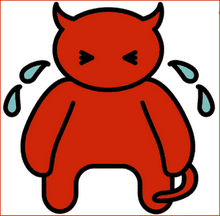 Manic Street Preachers
Manic Street PreachersSend Away the Tigers
[Rock]
As evidenced by 2004's lacklustre Lifeblood, Manic Street Preachers' sound now appears irreversibly crisp and controlled - Sean Moore's drums bob with metronomic precision, Nicky Wire's bass throbs politely out of plain view and James Dean Bradfield's guitars whisper verses and bellow choruses on demand. It is highly unlikely they will ever attempt to surpass the ice-cold gothic no-wave of The Holy Bible, the unhinged abandon of Know Your Enemy or the caustic bile of Generation Terrorists. But, in the grand scheme of things, does that really matter?
Here is a band who have railed against poverty (Slash 'N' Burn), drugs ('Methadone Pretty'), fascism ('If You Tolerate This...'), consumerism ('Motorcycle Emptiness') and gender roles ('Little Baby Nothing'), loud and proud, while others were seemingly content to gaze shoeward. They have criticized mindless liberalism ('Year of Purification') and declared support for the death penalty ('Archives of Pain'). With alarming alacrity they anticipated (and condemned) society's assault on thin women a decade before it began (4st 7lbs). And, perhaps most importantly of all, they have always encouraged kids to read books rather than get drunk - if you disagree with what they have to say, they want you to know what you're talking about.
No wonder it is often suggested that the Manics will be remembered more for their political posturing that their music. But therein lies a problem: their political posturing is their music, and vice versa, and it always has been and always will be.
Take, for example, the song 'Indian Summer' on their new record, Send Away the Tigers. "Maybe this time we'll kiss and not shake hands / And leave all this material belief / Remember the reasons / The reasons that made us be" howls Bradfield, defiant enough to avoid being submerged by a flood of text book strings and drab rock riffs. Elsewhere, on 'Rendition', Bradfield attempts to avoid death by banality as he ridicules the decline of idealism amid chugging strums and - shock of shocks - pounding 4/4 drums: "Blame it on the coalition / I never knew the sky was a prison".
Some of the songs even appear to embrace a sort of self-conscious cheesiness. For example, the impossibly bouncy pop of 'Autumnsong' and the exasperatingly conventional quiet/loud/quiet/loud/louder dynamics of 'Underdogs' underline the band's traditional disdain for needless experimentation. In fact, many of the ten tunes on offer here are so simple it almost hurts.
However, the Manics' role as a band, unreal as it seems, has always been to say rather than to sound - an idea Send Away the Tigers reinforces with aplomb. In one of those rare instances when simplicity usurps convolution, the plainness of the racket provides an effective backdrop for Wire to kick and spit with renewed vigour. Their eighth studio album and newest manifesto may not be a musical masterpiece but, in spite of that, it is a typically worthy release and certainly worth hearing. 74



No comments:
Post a Comment